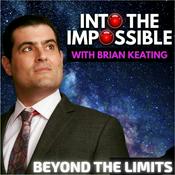1503 odcinków
- China's approach to digital governance has gained global influence, often evoking Orwellian 'Big Brother' comparisons. Governing Digital China (Cambridge UP, 2025) challenges this perception, arguing that China's approach is radically different in practice. This book explores the logic of popular corporatism, highlighting the bottom-up influences of China's largest platform firms and its citizens. Drawing on extensive fieldwork and nationally representative surveys, the authors track governance of social media and commercial social credit ratings during both the Hu Jintao and Xi Jinping eras. Their findings reveal how Chinese tech companies such as Tencent, Sina, Baidu, and Alibaba, have become consultants and insiders to the state, thus forming a state-company partnership. Meanwhile, citizens voluntarily produce data, incentivizing platform firms to cater to their needs and motivating resistance by platforms. Authors Daniela Stockmann and Ting Luo unveil the intricate mechanisms linking the state, platform firms, and citizens in the digital governance of authoritarian states.
Daniela Stockmann is Director of the Centre for Digital Governance and Professor of Digital Governance at the Hertie School.
Ting Luo is an Associate Professor in Government and Artificial Intelligence at the University of Birmingham.
Interviewer Peter Lorentzen is an associate professor of economics at the University of San Francisco, where he leads the Master's program in International and Development Economics.
Learn more about your ad choices. Visit megaphone.fm/adchoices
Support our show by becoming a premium member! https://newbooksnetwork.supportingcast.fm/economics Ron Hayduk, "Untangling the Political Roots of Immigration and Inequality in the United States" (Routledge, 2026)
10.02.2026 | 30 min.Untangling the Political Roots of Immigration and Inequality in the United States (Routledge, 2026) examines the causes, consequences, and politics of mass migration and growing inequality by investigating the case of the United States – the quintessential immigrant nation. While scholars, policy makers, and advocates have put forth a variety of explanations, many misdiagnose the causes and put forward remedies that treat symptoms. This book looks to the root causes of mass migration and intensifying inequality, arguing that they are two sides of the same coin resulting from rapacious forms of capitalist accumulation and imperialist interventionism. Developing a broadly left analytic framework grounded in elements of Marxist theory and political science, two periods are examined – 1870–1925 and 1970–2025 – when the proportion of immigrants in the US peaked at 15% of the total population, the US experienced steep inequality and political polarization, immigration and inequality became contentious political issues that generated sharp conflict, and immigrants and workers organized mass movements that advanced radical politics and transformative change. This book contains a wealth of information and elevates valuable lessons for scholars, policy makers, and organizers interested in understanding these trends and forging equitable and just solutions today.
Learn more about your ad choices. Visit megaphone.fm/adchoices
Support our show by becoming a premium member! https://newbooksnetwork.supportingcast.fm/economicsPeter S. Goodman, "Davos Man: How the Billionaire Class Devoured Democracy" (Custom House, 2022)
09.02.2026 | 56 min.Drawing on decades of experience covering the global economy, New York Times' journalist Peter S. Goodman profiles five representative Davos Men-members of the billionaire class-chronicling how their shocking exploitation of the global pandemic has hastened a fifty-year trend of wealth centralization. Alongside this reporting, Goodman delivers textured portraits of those caught in Davos Man's wake, including a former steelworker in the American Midwest, a Bangladeshi migrant in Qatar, a Seattle doctor on the front lines of the fight against COVID, blue-collar workers in the tenements of Buenos Aires, an African immigrant in Sweden, a textile manufacturer in Italy, an Amazon warehouse employee in New York City, and more in his book, Davos Man: How the Billionaires Devoured the World (Custom House, 2022).
Peter S. Goodman is the global economic correspondent for The New York Times, based in New York.
Caleb Zakarin is the Assistant Editor of the New Books Network (Twitter: @caleb_zakarin).
Learn more about your ad choices. Visit megaphone.fm/adchoices
Support our show by becoming a premium member! https://newbooksnetwork.supportingcast.fm/economicsNina Bandelj, "Overinvested: The Emotional Economy of Modern Parenting" (Princeton UP, 2026)
05.02.2026 | 1 godz.Parents are exhausted. When did raising children become such all-consuming, never-ending, incredibly expensive, and emotionally absorbing effort? In this eye-opening book, Nina Bandelj explains how we got to this point--how we turned children into financial and emotional investments and child-rearing into laborious work. At the turn of the twentieth century, children went from being economically useful, often working to support families, to being seen by their parents as vulnerable and emotionally priceless. In the new millennium, however, parents have become overinvested in the emotional economy of parenting.
Analyzing in-depth interviews with parents, national financial datasets, and decades of child-rearing books, Bandelj reveals how parents today spend, save, and even go into debt for the sake of children. They take on parenting as the hardest but most important job, and commit their entire selves to being a good parent.
The economization and emotionalization of society work together to drive parental overinvestment, offering a dizzying array of products and platforms to turn children into human capital--from financial instruments to extracurricular programs to therapeutic parenting advice. And yet, Bandelj warns, the privatization of child-rearing and devotion of parents' monies, emotions, and souls ultimately hurt the well-being of children, parents, and society. Overinvested: The Emotional Economy of Modern Parenting (Princeton UP, 2026) offers a compelling argument that we should reimagine children and what it means to raise them.
Nina Bandelj is Chancellor's Professor in the Department of Sociology at the University of California, Irvine, and past president of the Society for the Advancement of Socio-Economics.
Caleb Zakarin is CEO and Publisher of the New Books Network.
Learn more about your ad choices. Visit megaphone.fm/adchoices
Support our show by becoming a premium member! https://newbooksnetwork.supportingcast.fm/economicsNing Leng, "Politicizing Business: How Firms Are Made to Serve the Party-State in China" (Cambridge, 2025)
04.02.2026 | 55 min.In her new book, Politicizing Business: How Firms Are Made to Serve the Party-State in China (Cambridge, 2025), Ning Leng shows how Chinese officials systematically treat formally private firms as political instruments, extracting services that advance careers and maintain social control—often at the expense of business interests, economic efficiency and sustainable development. Ning Leng is an Assistant Professor at the McCourt School of Public Policy at Georgetown University.
Interviewer Peter Lorentzen is an Associate Professor of Economics at the University of San Francisco and is the Director of USF's Master's Program in International and Development Economics.
Learn more about your ad choices. Visit megaphone.fm/adchoices
Support our show by becoming a premium member! https://newbooksnetwork.supportingcast.fm/economics
Więcej Nauka podcastów
Trendy w podcaście Nauka
O New Books in Economics
This podcast is a channel on the New Books Network. The New Books Network is an academic audio library dedicated to public education. In each episode you will hear scholars discuss their recently published research with another expert in their field.
Discover our 150+ channels and browse our 28,000+ episodes on our website: newbooksnetwork.com
Subscribe to our free weekly Substack newsletter to get informative, engaging content straight to your inbox: https://newbooksnetwork.substack.com/
Follow us on Instagram and Bluesky to learn about more our latest interviews: @newbooksnetwork
Support our show by becoming a premium member! https://newbooksnetwork.supportingcast.fm/economics
Strona internetowa podcastuSłuchaj New Books in Economics, ZEIT WISSEN. Woher weißt Du das? i wielu innych podcastów z całego świata dzięki aplikacji radio.pl
Uzyskaj bezpłatną aplikację radio.pl
- Stacje i podcasty do zakładek
- Strumieniuj przez Wi-Fi lub Bluetooth
- Obsługuje Carplay & Android Auto
- Jeszcze więcej funkcjonalności
Uzyskaj bezpłatną aplikację radio.pl
- Stacje i podcasty do zakładek
- Strumieniuj przez Wi-Fi lub Bluetooth
- Obsługuje Carplay & Android Auto
- Jeszcze więcej funkcjonalności

New Books in Economics
Zeskanuj kod,
pobierz aplikację,
zacznij słuchać.
pobierz aplikację,
zacznij słuchać.




































